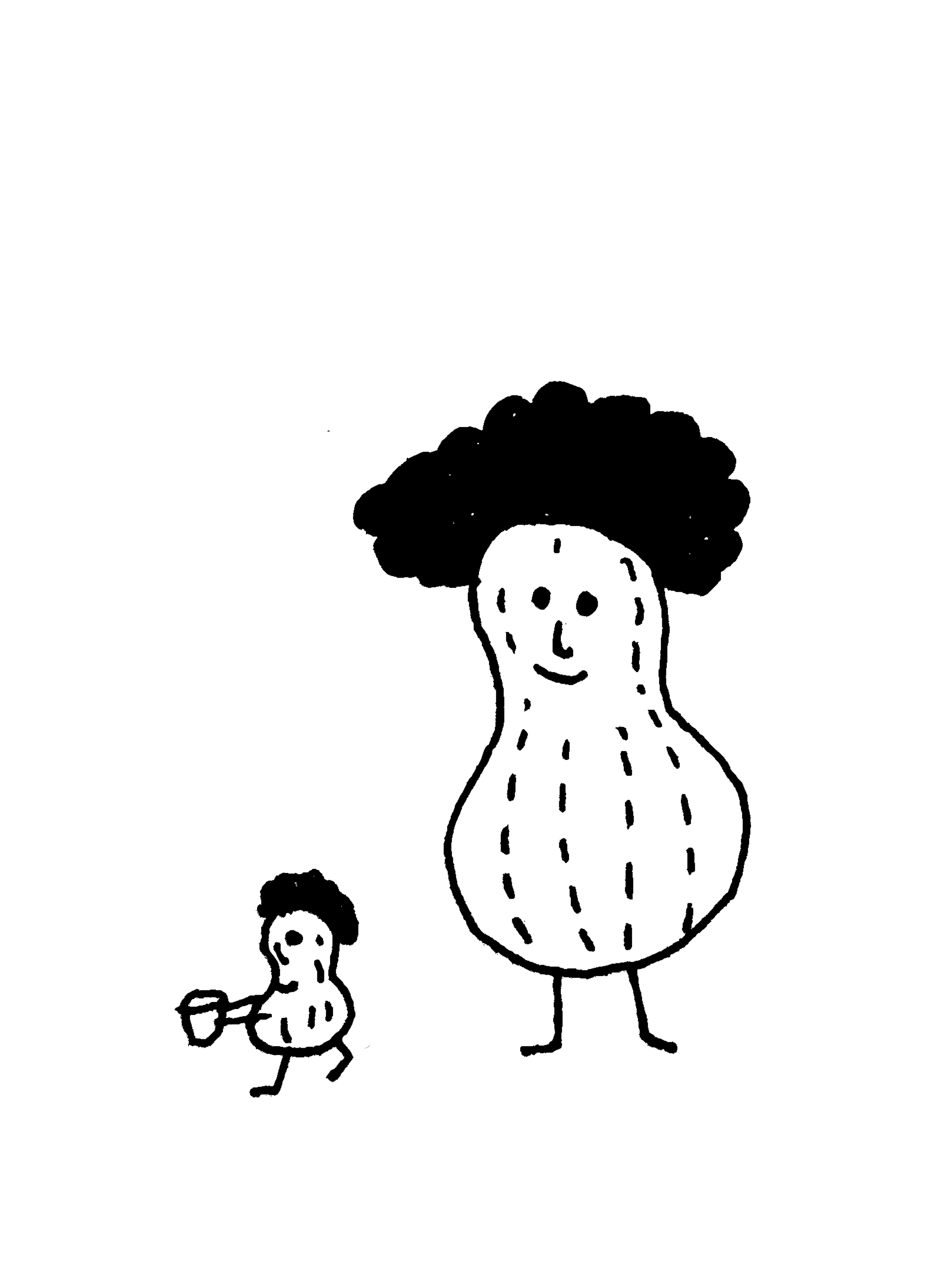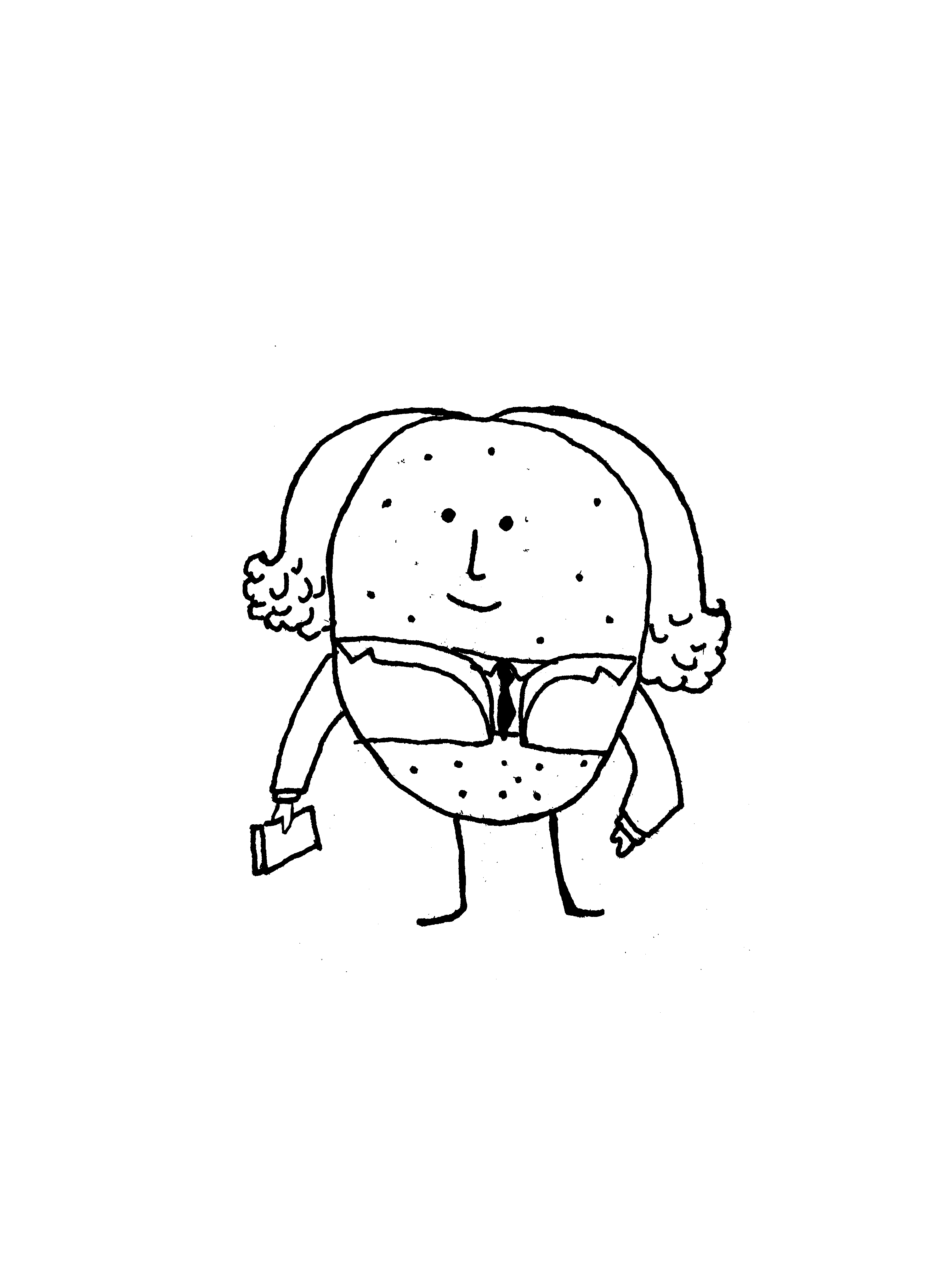Souptopia is a public intervention and performance of giving away 'Free Soup' to strangers. Benjamin Franklin once said to a friend not to pay the borrowed money back to him but lend this sum to someone else in need. It is well known that people are willing to do better things, when something good has happened to them. The concept was later coined as ‘paying it forward’ by Lily Hardy Hammond in her 1916 book In the Garden of Delight.
‘Free Soup’ is a continuation and practice of the long existing idea and movement of spreading kindness by ‘paying it forward’.
It takes the shape of a popup Protopia - a pragmatic approach for creating unforeseen relationships by sharing soup with strangers. It is an invitation to pause for a moment and pay attention to where you are and what is around you.
The soups are named after people who inspire these social protopias such as Benjamin Franklin, Charlie Chaplin and Abede Agyei. Their stories and words serve as great conversation starters for dreaming up kinder worlds.
Above all, giving away ‘Free Soup’ is a pretty good recipe for enjoying an afternoon, making others smile and for making this world a little bit tastier, kinder and more communal.
RECIPIES
FREE SOUP
CHARLIE CHAPLINS CARROTS
ABENA AGYEI PEANUTS
BENJAMIN FRANKLIN POTATOS
SOUPER HERO PEAS
MANIFESTO SOUP
CHARLIE CHAPLIN CARROT SOUP
I’d like to draw your attention to the awesome speech from The Great Dictator where Charlie Chaplin makes that passionate statements against racism, intolerance, despise and obedience promoting more happiness, kindness ad gentleness to everyone. An 80 years old speech, more up to date than ever. Take a look!
20 cups: olive oil, 3 onions, 4 bunch carrots, 5 thumbs of ginger, 2 cans coconut milk, 2l vegetable stock, 1-2 organic oranges, sesame or sumac seed.
1. Wash, peel(if necessary) and chop the vegetables
2. Heat the oil in a saucepan over a medium heat. Add the onion and sauté for 3–4 minutes
3. Add carrots, ginger and vegetable stock and bring to the boil. Reduce the heat and simmer for about 10 minutes until softened
4. Take off the heat and blend the soup. Then add the coconut milk and orange peel
5. Taste to liking with salt, pepper and orange juice. Adjust consistency with water
6. Garnish with sesame or sumac
7. Serve with a smile

20 cups: olive oil, 3 onions, 4 bunch carrots, 5 thumbs of ginger, 2 cans coconut milk, 2l vegetable stock, 1-2 organic oranges, sesame or sumac seed.
1. Wash, peel(if necessary) and chop the vegetables
2. Heat the oil in a saucepan over a medium heat. Add the onion and sauté for 3–4 minutes
3. Add carrots, ginger and vegetable stock and bring to the boil. Reduce the heat and simmer for about 10 minutes until softened
4. Take off the heat and blend the soup. Then add the coconut milk and orange peel
5. Taste to liking with salt, pepper and orange juice. Adjust consistency with water
6. Garnish with sesame or sumac
7. Serve with a smile

ABENA AGYEI PEANUT SOUP
This soup is a homage to an open-minded Abena Agyei elderly from my time in Ghana. She often sent a warm meal to me via her grandchildren – all though I already had one. With this gesture she gave me a feeling of being welcomed and invited me to share culture, exchange ideas apart any prejudice. A long-lasting memory resulting in this recipe.
20 cups: olive oil, 3 onions, 4 thumbs ginger, 4 garlic cloves, chilli, 2 tbsp cumin, 3 tbsp tomato paste, 700g sweet-potato, 1 can of chickpeas, 200g peanut butter, 1.5l vegetable stock, 2 cans crushed tomato, vinegar, cilantro to garnish
1. Wash, peel(if necessary) and chop the vegetables
2. Heat the oil in a saucepan over a medium heat. Sauté the onion for 3–4 minutes. Then add the aromatics. Ginger, garlic, chilli, salt, pepper, cumin, tomato paste. Enjoy the fragrance.
3. Pour in the stock and crushed tomato, along with the sweet-potato peanut butter and let simmer for 15 minutes
4. Take off the heat and blend the soup.
5. Taste to liking with salt, pepper, peanut butter and vinegar. Adjust consistency with water
6. Garnish with cilantro
7. Serve with a smile

20 cups: olive oil, 3 onions, 4 thumbs ginger, 4 garlic cloves, chilli, 2 tbsp cumin, 3 tbsp tomato paste, 700g sweet-potato, 1 can of chickpeas, 200g peanut butter, 1.5l vegetable stock, 2 cans crushed tomato, vinegar, cilantro to garnish
1. Wash, peel(if necessary) and chop the vegetables
2. Heat the oil in a saucepan over a medium heat. Sauté the onion for 3–4 minutes. Then add the aromatics. Ginger, garlic, chilli, salt, pepper, cumin, tomato paste. Enjoy the fragrance.
3. Pour in the stock and crushed tomato, along with the sweet-potato peanut butter and let simmer for 15 minutes
4. Take off the heat and blend the soup.
5. Taste to liking with salt, pepper, peanut butter and vinegar. Adjust consistency with water
6. Garnish with cilantro
7. Serve with a smile

BENJAMIN FRANKLIN POTATO SOUP
Benjamin Franklin is known to have said to a friend not to pay the borrowed money back to him but to lend this sum to someone else who will need it. In the book In Garden of Delight Lily Harmond later coined this concept as “paying it forward’. Ripples of happiness love and kindness that can make a big impact on the world.
20 cups: olive oil, 4 leeks, 1,5kg potatoes peeled chopped, 5 medium carrots, 2l stock, 1 can coconut milk, 5 garlic cloves and 1tbs cumin (optional), parsley to garnish
1. Wash, peel(if necessary), and chop the vegetables
2. Heat the oil in a saucepan over a medium heat. Add the leak garlic and cumin and sauté for 3–4 minutes
3. Add potatoes, carrots and vegetable stock and bring to the boil. Reduce the heat and simmer for about 10 minutes until softened
4. Take off the heat and blend the soup. Then add the coconut milk
5. Taste to liking with salt and pepper. Adjust consistency with water
6. Garnish with parsley
7. Serve with a smile
Great with some croutons from the oven.

20 cups: olive oil, 4 leeks, 1,5kg potatoes peeled chopped, 5 medium carrots, 2l stock, 1 can coconut milk, 5 garlic cloves and 1tbs cumin (optional), parsley to garnish
1. Wash, peel(if necessary), and chop the vegetables
2. Heat the oil in a saucepan over a medium heat. Add the leak garlic and cumin and sauté for 3–4 minutes
3. Add potatoes, carrots and vegetable stock and bring to the boil. Reduce the heat and simmer for about 10 minutes until softened
4. Take off the heat and blend the soup. Then add the coconut milk
5. Taste to liking with salt and pepper. Adjust consistency with water
6. Garnish with parsley
7. Serve with a smile
Great with some croutons from the oven.

MANIFESTO SOUP
Ingredients:
A handful manifestos
(here are some fresh manifestos) Scissors
A pot
500ml water
Cut up the manifestos into sound slices and throw them into the pot.
Give it a loving stir and let rest for a minute. Done.
Serve the manifesto soup in bowl and let the real fun begin.
With a spoon, or your fingers fish out random slices and arrange them on a paper.
Et voila, your manifesto is ready. You might want to season it to taste with your own words.
Enjoy.

A handful manifestos
(here are some fresh manifestos) Scissors
A pot
500ml water
Cut up the manifestos into sound slices and throw them into the pot.
Give it a loving stir and let rest for a minute. Done.
Serve the manifesto soup in bowl and let the real fun begin.
With a spoon, or your fingers fish out random slices and arrange them on a paper.
Et voila, your manifesto is ready. You might want to season it to taste with your own words.
Enjoy.

SOUPER HERO PEA SOUP
With this soup I thank all the SOUPer Heroes out there! People preparing wonderful soup to give a way to others for free. Through this they help the world become a kinder, tastier more gentle place, soup by soup. I met a few on my life, and I look up to them. Keep your eyes open.
20 cups: olive oil, 3 medium Onions, 1,5 kg frozen peas, 2 thumbs of ginger, 2l vegetable stock, mint leafs to garnish
1. Wash, peel(if necessary), and chop the vegetables
2. Heat the oil in a saucepan over a medium heat. Add the onion and sauté for 3–4 minutes
3. Add the frozen peas and vegetable stock and bring to boil. Reduce the heat and simmer for ten minutes
4. Take off the heat, add the ginger and blend the soup
5. Taste to liking with salt and pepper. Adjust consistency with water
6. Garnish with mint leafs
7. Serve with a smile
20 cups: olive oil, 3 medium Onions, 1,5 kg frozen peas, 2 thumbs of ginger, 2l vegetable stock, mint leafs to garnish
1. Wash, peel(if necessary), and chop the vegetables
2. Heat the oil in a saucepan over a medium heat. Add the onion and sauté for 3–4 minutes
3. Add the frozen peas and vegetable stock and bring to boil. Reduce the heat and simmer for ten minutes
4. Take off the heat, add the ginger and blend the soup
5. Taste to liking with salt and pepper. Adjust consistency with water
6. Garnish with mint leafs
7. Serve with a smile
FREE SOUP RECIPE
Who does not enjoy a warm and healthy soup, filled with love – and that for free.
Ingredients:
A soup, a table, cups or bowls, a free soup sign (make one or print one here) and maybe a chair for you.
1. Make a soup, there are some great recipes here. Feel free to add your own.
2. Set up the table and chair(s) in-front of you door. Make sure its clean.
3. Bring out the soup, the cups or bowls and place your “free soup” sign.
4. Offer ‘free soup’ and a smile to anyone who comes by.
5. Enjoying an our or two, sitting outside serving soups and smiles and making the world a little bit tastier, kinder and more communal. Don’t worry if people are not so receptive. The goal is not to finish the soup, but offer kindness to strangers. And most people do know to appreciate the offer even without eating a soup.
6. If people ask you why you do this? Well what is your story? Do you also enjoy the ideas of Charlie Chaplin or have someone else you find inspiring?
7. If you like to take think of something you could. Sometimes the best present is the opportunity to give a present. To become the giver instead of the receiver. It could be an extra cup of soup, a flower to give on, or one of these recipe cards.
You can always reach for cooking tips.
Ingredients:
A soup, a table, cups or bowls, a free soup sign (make one or print one here) and maybe a chair for you.
1. Make a soup, there are some great recipes here. Feel free to add your own.
2. Set up the table and chair(s) in-front of you door. Make sure its clean.
3. Bring out the soup, the cups or bowls and place your “free soup” sign.
4. Offer ‘free soup’ and a smile to anyone who comes by.
5. Enjoying an our or two, sitting outside serving soups and smiles and making the world a little bit tastier, kinder and more communal. Don’t worry if people are not so receptive. The goal is not to finish the soup, but offer kindness to strangers. And most people do know to appreciate the offer even without eating a soup.
6. If people ask you why you do this? Well what is your story? Do you also enjoy the ideas of Charlie Chaplin or have someone else you find inspiring?
7. If you like to take think of something you could. Sometimes the best present is the opportunity to give a present. To become the giver instead of the receiver. It could be an extra cup of soup, a flower to give on, or one of these recipe cards.
You can always reach for cooking tips.
THE ART OF SOUP MAKING
Soup is a shared cultural heritage. A discovery of ancient times. Ancient communities where sharing communities. It was necessary to survive in the harsh environments.
Being known as a kind person, a person that helps other people would have made you a valuable person to keep around. Today, especially in urban environments, we live in communities of strangers. Strangers are unknown and often perceived as a threat. We rarely share with strangers more often we fight. And that is not a recipe for happiness.
I don’t to fight anyone, I would like to help everyone if possible. As Charlie Chaplin said in his heartwarming speech as the ‘Great Dictator’:
“We all want to help one another, human beings are like that. We want to live by each other's happiness, not by each other's misery”
Soup is a symbol of care and love. A nurturing liquid. An often simple and beautiful dish. It is hard to put soup into box. I miserably failed to come up with a simple definition. Yet we all know what we talk about Soup. It is prepared in all cultures of the world taking all different forms and shaped. It can be hot or cold, smooth or chunky, thick or thin, sweet or salty…
For me soup just stands for Sunshine, Openness, Unity and Passion.

On soup making:
Soup is a mixture.
Different parts come together and form a flavoursome liquid. Let’s accept our differences and learn to thrive with them.
Soup simmers and boils.
Things take take time and that okay. Let us p a u s e. Stop to think, question and critique.
Soup needs care.
It is a delicate process, requiring close observation. Let us consciously listen and care for each other.
Soup needs feeling.
Love, passion and intention are some of the most important ingredients. You can not buy this. Les us practice to open our hearts and feel.
Soup transform.
It is first cold than hot, it is stirred and often blended. Let us be open to change and befriend the unknown.
Soup can overcook.
We all make mistakes – and learn from them. Let us be gentle to ourselves.
Soup is subjective.
We say “taste to liking” and that what we should do. Let us listen to our gut and intuition and carry into the world what we believe is good.
At last, soup invites to be shared.
An African proverb say: “if you want to go fast go alone, if you want to go far go together”. Let us engage in community building. Dance around the fire. Dream up collective futures.
Let us soup together.
Being known as a kind person, a person that helps other people would have made you a valuable person to keep around. Today, especially in urban environments, we live in communities of strangers. Strangers are unknown and often perceived as a threat. We rarely share with strangers more often we fight. And that is not a recipe for happiness.
I don’t to fight anyone, I would like to help everyone if possible. As Charlie Chaplin said in his heartwarming speech as the ‘Great Dictator’:
“We all want to help one another, human beings are like that. We want to live by each other's happiness, not by each other's misery”
Soup is a symbol of care and love. A nurturing liquid. An often simple and beautiful dish. It is hard to put soup into box. I miserably failed to come up with a simple definition. Yet we all know what we talk about Soup. It is prepared in all cultures of the world taking all different forms and shaped. It can be hot or cold, smooth or chunky, thick or thin, sweet or salty…
For me soup just stands for Sunshine, Openness, Unity and Passion.

On soup making:
Soup is a mixture.
Different parts come together and form a flavoursome liquid. Let’s accept our differences and learn to thrive with them.
Soup simmers and boils.
Things take take time and that okay. Let us p a u s e. Stop to think, question and critique.
Soup needs care.
It is a delicate process, requiring close observation. Let us consciously listen and care for each other.
Soup needs feeling.
Love, passion and intention are some of the most important ingredients. You can not buy this. Les us practice to open our hearts and feel.
Soup transform.
It is first cold than hot, it is stirred and often blended. Let us be open to change and befriend the unknown.
Soup can overcook.
We all make mistakes – and learn from them. Let us be gentle to ourselves.
Soup is subjective.
We say “taste to liking” and that what we should do. Let us listen to our gut and intuition and carry into the world what we believe is good.
At last, soup invites to be shared.
An African proverb say: “if you want to go fast go alone, if you want to go far go together”. Let us engage in community building. Dance around the fire. Dream up collective futures.
Let us soup together.
GROWING SOUP
Growing soup is an experiment of growing food.
It is a different way of looking at agriculture practices and our food culture. While our food is often grown in monocultures this is not a very healthy way of growing food, neither for soil or living beings. The Soup Club is a dedicated community united around the idea of ‘growing soup’. Together we explore polyculture techniques. This is an agricultural method that mimics nature in its design and composes complementing species in the same space, leading to a healthier soil, plant… and soup.
It is a research not only into polyculture but also into the preservation of ingredients as not you can not harvest everything at once. It is also an exploration of unknown plants that find their way into the soup-pot shaped fields on their own. Growing soup also raises the questions of human hierarchy. Do we really have the right to kill insects that eat our soup when the aim of growing soup is to create sharing communities? With the world constantly accelerating growing soup it is a practice to pause and celebration of slow and inefficient, that really is the natural time. Things take time and thats okay.

It is a different way of looking at agriculture practices and our food culture. While our food is often grown in monocultures this is not a very healthy way of growing food, neither for soil or living beings. The Soup Club is a dedicated community united around the idea of ‘growing soup’. Together we explore polyculture techniques. This is an agricultural method that mimics nature in its design and composes complementing species in the same space, leading to a healthier soil, plant… and soup.
It is a research not only into polyculture but also into the preservation of ingredients as not you can not harvest everything at once. It is also an exploration of unknown plants that find their way into the soup-pot shaped fields on their own. Growing soup also raises the questions of human hierarchy. Do we really have the right to kill insects that eat our soup when the aim of growing soup is to create sharing communities? With the world constantly accelerating growing soup it is a practice to pause and celebration of slow and inefficient, that really is the natural time. Things take time and thats okay.

SOUP
soup is a wise liquid
a complementing chorus of things
it simmers, it boils, it gathers its wings
With every stir an open door
late at night and early morn
twirled by the wind of unicorns
it feeds and sways
a smiley face
years of knowledge of stone and water
stirred with care and aged with time
I hear a song, a simple one
with eyes of a child
so bright and clear
let us smile like butterflies
fly away and start again
let us become soup

a complementing chorus of things
it simmers, it boils, it gathers its wings
With every stir an open door
late at night and early morn
twirled by the wind of unicorns
it feeds and sways
a smiley face
years of knowledge of stone and water
stirred with care and aged with time
I hear a song, a simple one
with eyes of a child
so bright and clear
let us smile like butterflies
fly away and start again
let us become soup

KIND DESIGN
Countless self-help books, religious texts and studies have told us to be kinder. We talk about it, read about it and watch cute videos of dogs hugging cats.
But how often to we practice kindness in our daily lives?
Many of us have a lot going on in our lives. We are constantly juggling between work, family, fears and other stressors. This can see kindness pushed to the side.
Different to other disciplines Design not only relies on thinking and talking but also on the act of creating and putting things into action. Similar to social design, kind design does not focus on the creation of products for sale, but on taking more inclusive, empathetic, and engaged forms of action that will transform the world for the better. It is pragmatic approaches to transforming this society into a kinder and communal one. It supporting everyone’s mental health and also reduces discrimination and inequality. Personal engagement is key as there is a value in decentralised small forms of actions and community care, accessible and adapted to a specific terrain.
These are 7 guiding principles for kind designers:
1. Listen: Be attentive to the world and beings around you. Get in touch with your communityAsk how you can help.
2. Mingle: An African proverb says: “If you want to go fast go alone, if you want to go far, go together” Engage in community building. Learn from others. Collaborate and dance around the fire. Dream up collective futures.
3. Act: When it comes to kindness, don’t overthink. An act of kindness is never wasted, in contrary it often leads to more. Kindness is known to ripple. Construct pockets of kind protopias.
4. Be patient. Things take time, especially the ones that matter. Drink plenty of beers with friends.
6. Be Kind to others: Kindness is one of the things we all have the ability to share. It’s free, it feels great and it is in our control. Pay gratitude, make soup, openly admire and support others - or just smile at a stranger — also when it will weird them out.
5. Be even kinder to yourself: Don’t beat yourself up, we make mistakes and that is okay, we learn from it. Trust yourself, you are where you need to be.
7. Smile: Smile! All day every day, glue it on if necessary- I recommend Bison Superlime. But seriously, do what you like and follow your heart gut.

But how often to we practice kindness in our daily lives?
Many of us have a lot going on in our lives. We are constantly juggling between work, family, fears and other stressors. This can see kindness pushed to the side.
Different to other disciplines Design not only relies on thinking and talking but also on the act of creating and putting things into action. Similar to social design, kind design does not focus on the creation of products for sale, but on taking more inclusive, empathetic, and engaged forms of action that will transform the world for the better. It is pragmatic approaches to transforming this society into a kinder and communal one. It supporting everyone’s mental health and also reduces discrimination and inequality. Personal engagement is key as there is a value in decentralised small forms of actions and community care, accessible and adapted to a specific terrain.
These are 7 guiding principles for kind designers:
1. Listen: Be attentive to the world and beings around you. Get in touch with your communityAsk how you can help.
2. Mingle: An African proverb says: “If you want to go fast go alone, if you want to go far, go together” Engage in community building. Learn from others. Collaborate and dance around the fire. Dream up collective futures.
3. Act: When it comes to kindness, don’t overthink. An act of kindness is never wasted, in contrary it often leads to more. Kindness is known to ripple. Construct pockets of kind protopias.
4. Be patient. Things take time, especially the ones that matter. Drink plenty of beers with friends.
6. Be Kind to others: Kindness is one of the things we all have the ability to share. It’s free, it feels great and it is in our control. Pay gratitude, make soup, openly admire and support others - or just smile at a stranger — also when it will weird them out.
5. Be even kinder to yourself: Don’t beat yourself up, we make mistakes and that is okay, we learn from it. Trust yourself, you are where you need to be.
7. Smile: Smile! All day every day, glue it on if necessary- I recommend Bison Superlime. But seriously, do what you like and follow your heart gut.




